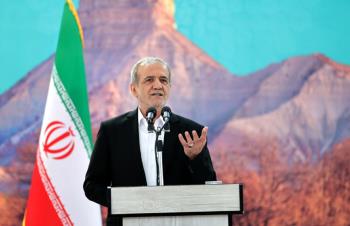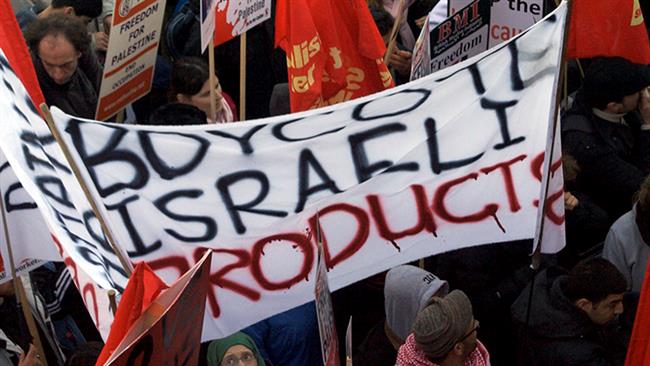Alwaght-Palestinian Liberation Organization, PLO, officials on Wednesday slammed British proposals to forbid a boycott of Israeli regime's settlement goods saying the move empowers the regime.
PLO Executive Committee member Hanan Ashrawi and Secretary-General Saeb Erekat said in a joint statement on Wednesday that the proposed regulation marked a "serious regression in British policy" that both hindered the two-state solution and neglected the rights of British citizens.
After meeting with UK Minister for Middle East Affairs Tobias Ellwood, the officials said the plans would in effect ban "any kind of ethical procurement" by local governments, public bodies and publicly-funded organizations, including some student unions.
They said it sent a message of "impunity" to Israel regarding its continued expansion of Zionist settlements in the occupied Palestinian territory, considered illegal under international law.
Referring to the 1917 Balfour Declaration, in which Britain pledged its support for the creation of the Israeli entity, the officials said Britain bore "the primary responsibility" for "historical injustice in Palestine."
The officials noted that the new regulations would have "prevented British citizens from taking peaceful actions" against South Africa during the apartheid era.
They said athe regulations would prohibit public bodies from "exercising their democratic right and freedom of choice not to be complicit in the Israeli regime's settlement project."
They added: "In order to accommodate the Israeli occupation, the British Government is undermining British democracy and their own people’s rights."
If implemented, the UK measure would be seen by some as a step back for the boycott movement following a recent EU decision to prohibit settlement products -- as well as any other goods made in the occupied territories -- from being labeled "Made in Israel."
The labeling regulation was applauded by the Palestinian Boycott, Divestment, and Sanctions (BDS) movement, which aims to place economic pressure on the apartherid Israeli regime to meets its obligations under international law, as occurred with South Africa.
Rafeef Ziadah, a spokesperson for the UK branch of the Palestinian BDS National Committee, also slammed Britain's proposed regulation on Wednesday.
"By undermining local democracy in service of Israel, David Cameron is standing on the wrong side of history, just as Margaret Thatcher did with her support for apartheid South Africa," Ziadah said.
"The BDS movement in the UK has achieved wide support precisely because of the failure of successive UK governments to take action in response to Israel’s war crimes."
Meanwhile the BDS movement in South Africa welcomed the reported cancellation of an upcoming water conference featuring Israeli regime's ambassador to the country.
Israeli regime's ambassador to South Africa, Arthur Lenk, was reportedly to participate in the conference about South Africa’s water crisis, scheduled for the end of February. The conference was reportedly organized by the Mail & Guardian newspaper.
In a statement Tuesday, BDS South Africa lauded the cancellation, as well as the withdrawal of Lorenzo Fioramonti of the University of Pretoria from the event because of his support for the academic boycott of the Israeli regime.



























